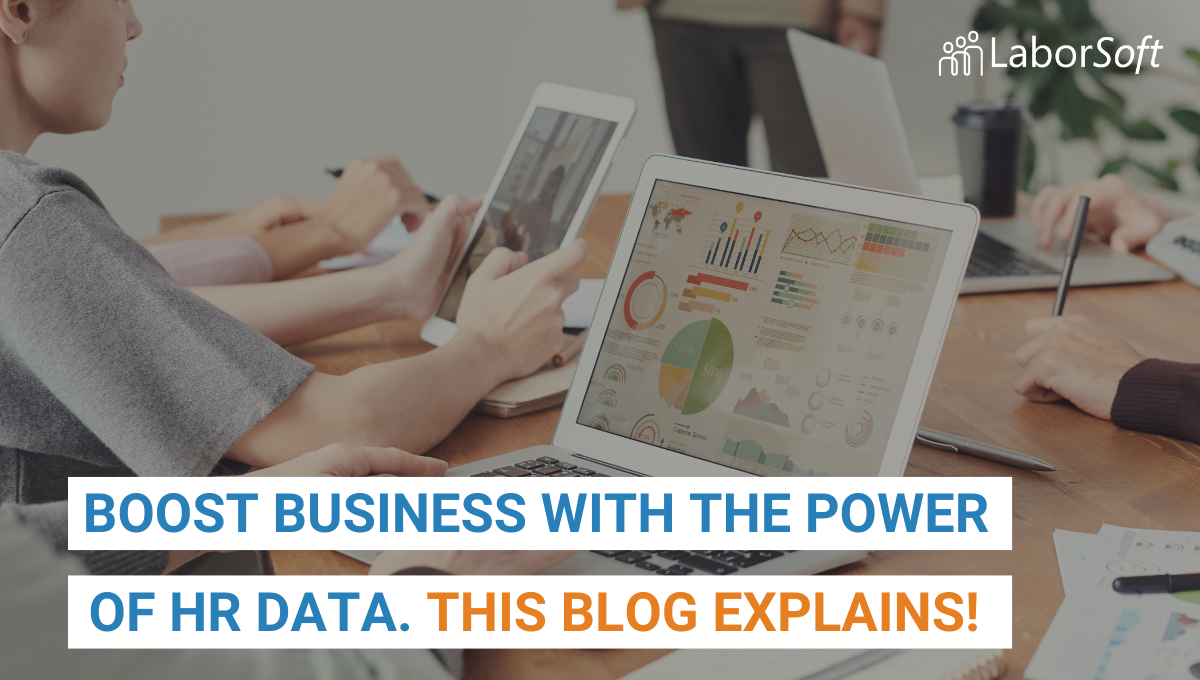Employee Relations | Reporting & Analytics
3 Ways to Use HR Data to Improve Employee Relations.
Read Time 3 mins | Aug 5, 2019 | Written by: Frankie Kourtis

 Everyone knows that data is BIG these days. In fact, if you are not collecting it, aggregating it and analyzing it, then you are probably missing out on a myriad of opportunities. It used to be that Sales, Marketing and Operations were generally the departments knee-deep in data, but now ALL departments need to collect and leverage data in order to make informed business decisions. The same holds true for HR in terms of managing employee relations, specifically for recording trends in workplace culture, as well as for measuring employee engagement, morale and performance.
Everyone knows that data is BIG these days. In fact, if you are not collecting it, aggregating it and analyzing it, then you are probably missing out on a myriad of opportunities. It used to be that Sales, Marketing and Operations were generally the departments knee-deep in data, but now ALL departments need to collect and leverage data in order to make informed business decisions. The same holds true for HR in terms of managing employee relations, specifically for recording trends in workplace culture, as well as for measuring employee engagement, morale and performance.
HR analytics directly correlates to business operations in the areas of hiring and/or recruiting, training & professional development, benefits, and workforce retention. While HR analytics requires companies to invest heavily in data management software or cloud-based technologies, the return on investment and insights gained can be immeasurable. And the boons of big data are beneficial to the health of a company.
1) Engaged Employees are Good Performers
Employers are providing their employees with more of an opportunity to weigh in on the areas that are important to them these days—whether it be training and room for growth or mobility, an even work-life balance including options for flexible working hours or working remotely, and incentives or rewards for meeting goals. This type of dialogue, whether in the form of surveys, assessments or evaluations, is the epitome of good employee relations practice and provides HR and the C-suite with hard evidence of what’s working and what is not. This, in turn, creates a positive environment where employees feel listened to and heard and can boost morale and improve performance.
2) Data Collection Can Lead to Retention
You cannot downplay the importance of knowing what makes employees stay or go. However, data is often only collected when an employee is halfway out the door during an exit interview. It shouldn’t be surprising that gleaning significant trends and sentiments on employee turnover can be key in retaining staff. One of the most important times to collect and assess this information is from employees who stay after the precarious first year of employment. If you do this, you can avoid employee relations pitfalls and may evade many of the costs associated with recurring hiring and onboarding.
3) Apply Talent Tactfully
Many HR organizations have caught on that collecting data early is more important than collecting it after the fact. For example, it has become common practice for prospective candidates to take personality and skill set tests to be considered for a position. The fact is that assessing talent and matching skill sets can be a key predictor for corporate success. Not only can this arm an HR manager or supervisor with information about an employee’s suitability for a job, but can bode well for establishing work efficiency within an assembled team. And we know that a cohesive company is often a successful company.
LaborSoft’s innovative technology is one of many integral solutions that keep your business, in business. Our employee relations analytics, case management workflows, and our central repository of documentation streamlines case management to mitigate risk of operational bottlenecks, costly lawsuits, and legal ramifications stemming from HR issues and complaints. This sensitive data requires that maximum security protocols are in place and that your information is protected at all times.
------------------------------------------------------------------------------------------------------------
Contact us for a customized demonstration and learn how LaborSoft can help you improve communications, build a more collaborative, safe, and supportive workplace, while reducing the likelihood of costly litigation.

